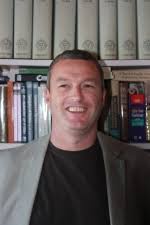
Dr Stuart Durkin, School of Social Science explains how the use of authentic assessments encourage and support students' academic integrity and employability.
- Context
-
Working Together: Employability for Arts and Social Sciences ED3536, was initially launched in the academic year 2014-15. This 30-credit course involves 3rd year undergraduates undertaking a group, virtual project, that is current and meaningful to a local start-up business, SME organisation, or charity. The course is designed to support students to:
- Critically analyse their project learning experiences.
- Explore their skills and Aberdeen Graduate Attribute development.
- Capture their next career planning steps and future learning goals.
The course includes several assessments, namely a group oral presentation (30%) and an individual 3,000-word, reflective report (70%). This approach helps to facilitate students' authentic real-world learning, compared to other more traditional types of assessment, such as tests and essays, which seldom occur in workplace contexts.
- Activity
-
To support students' authentic learning, the assessed individual reflective report:
- Requires students to reflect and evaluate issues, which relate to their own project experience.
- Uses a guiding formative assessment, which requires students to provide evidence of their project planning and progress at an early stage in the course.
- Includes ample time in class to discuss the assessment and build student confidence.
As students reflect individually on their project learning and skills development for their report, they are personally required to share their own project experiences in both formative and summative assessments. This helps to reduce the potential for any academic misconduct issues, including the outsourcing to others.
- Impact
-
Students report in the Course Feedback Form that they welcome the assessment approach, as illustrated by the following comments:
“I found the formative assessments a wonderful idea as they really helped us throughout the course and also prepared us for the summative assessments.” (Course Feedback Form, 2020-21)
“Greater self-awareness achieved from reflecting in final report and action points going forward.” (Course Feedback Form, 2020-21).
From a staff perspective, it is interesting to read, mark and grade students' project reflections. It is also clear from the assessment design and student feedback, that implementing this personalised and authentic approach is helping to uphold academic integrity in the ED3536 course.
